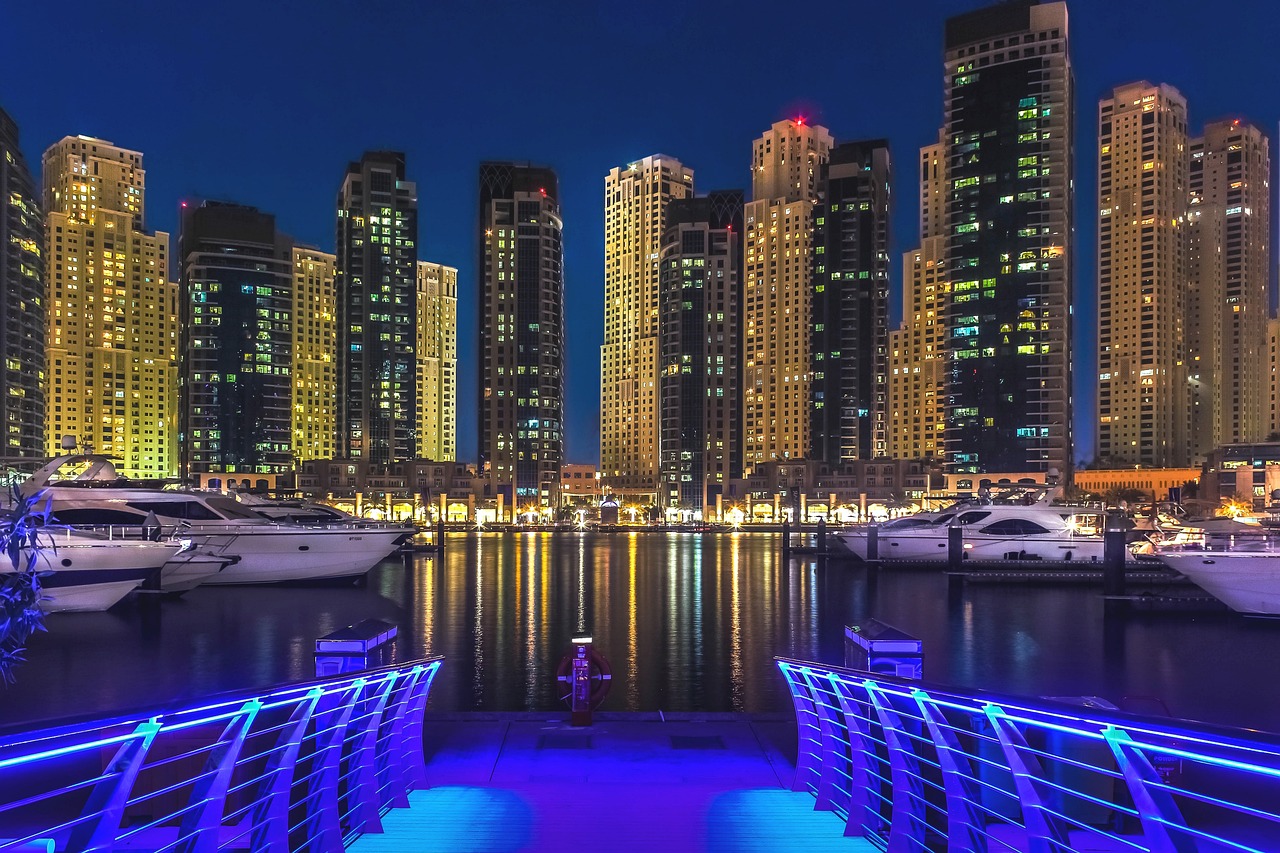According to the Real Estate Market Overview and Analysis Report for Q3 2024, prepared by “DXB Interact,” the total volume of sales transactions in the market reached 50,423 during the third quarter of 2024, representing an increase of 37.9 percent compared to the same quarter of the previous year. The average price is around 1,511 dirhams per square foot, reflecting an annual increase of 7.5 percent. The quarterly sales volume amounted to 141.9 billion dirhams, which is an increase of 30.1 percent compared to the same period last year. Last year, investments directed towards the real estate sector in Dubai amounted to about 100 billion dollars, and it is expected that these trends will be repeated this year.
The real estate sector in Dubai is experiencing increasing confidence with expectations that the UAE’s economy will grow by about 4.5% during the 2024-2025 period. Economists anticipate a compound annual growth rate exceeding 8% between 2024 and 2029, with increasing demand for real estate investment.
Supply and Demand
Dubai is expected to deliver approximately 100,000 new residential units in 2024. In the third quarter alone, 45% of the units scheduled for delivery were handed over, reflecting success in meeting the growing demand. This supply of housing clearly indicates that the city is working hard to meet the increasing demand in a competitive environment. Notably, areas such as Jumeirah Village Circle and Dubai Marina are leading the list of units delivered and those to be delivered in the future.
However, there are some challenges associated with the construction sector and the supply chain, forcing developers to reduce costs and improve operational efficiency. Nonetheless, the continued emergence and introduction of new properties make the market appear unaffected by these pressures.
Shifts in Consumer Preferences
One of the new trends emerging in real estate sector in Dubai is the increasing interest in affordable housing. With the growing difficulty of finding suitable, reasonably priced housing in recent years, developers have started to focus their efforts on providing more units while maintaining moderate rent growth. This shift is significant as it meets the needs of the growing middle-income segment in Dubai.
Additionally, there is a notable increase in demand for luxury properties, particularly among high-net-worth individuals looking to purchase exclusive villas and waterfront properties. According to a report by “Engel & Völkers,” Middle East, Palm Jumeirah recorded 110 property transactions worth more than 10 million dirhams in the third quarter of 2024, including three transactions exceeding 200 million dirhams. Among the high-end sales was a penthouse apartment that achieved 275 million dirhams, confirming the strong demand for luxury homes in this prime location. Areas such as Palm Jumeirah, Emirates Hills, Bluewaters Island, and Dubai Marina continue to attract high-net-worth individuals, especially from Europe and Asia.
Infrastructure Development and Emerging Areas
Across Dubai, infrastructure initiatives are improving connectivity between different areas, increasing demand in many new regions. The extensive improvements include the expansion of the public transport network as well as the construction of new roads that will provide access to the city’s suburbs. Areas like Dubai South, which enjoy a strategic location near Expo 2020 and Al Maktoum International Airport, continue to attract more investors due to these infrastructure improvements. Additionally, planned developments such as Dubai Creek Harbour and new neighborhoods like Emaar’s The Valley are expected to attract residents and investors.
2025 and Beyond: Unleashing Investment Potential
Real estate sector in Dubai: A Bright Future for Investments attracts investors from various sectors, ranging from luxury properties to affordable housing. The economic conditions, coupled with foreign investment opportunities approved by the government and a focus on green construction, give Dubai a competitive edge as a real estate hub. Timing and strategic location are crucial factors, especially with the emergence of new attractive areas expected to generate significant rental yields and capital appreciation as well.
Read also,
Analysts anticipate a further increase in the housing market due to the growing demand driven by the arrival of more than 4 million expatriates by 2025. This surge is leading to increased demand for housing, with rents expected to rise significantly—by more than 18 percent for short-term rentals and around 13 percent for long-term rentals. Dubai’s appeal as an attractive lifestyle destination, coupled with the high costs of property ownership, bolsters the rental market. For investors, the next few years are crucial for capitalizing on emerging real estate trends in Dubai to achieve long-term gains on their investments.





